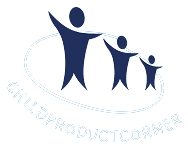Effective marketing is the backbone of any successful organization. Whether it’s a small startup, a nonprofit, or a multinational corporation, marketing plays a crucial role in building brand awareness, attracting customers, and driving growth. In today’s competitive business landscape, organizations need well-structured strategies to reach their target audience and stand out. Here’s how to effectively market organizations and ensure long-term success.
1. Understand Your Audience
The foundation of effective marketing begins with a deep understanding of the target audience. Organizations must conduct thorough market research to identify who their potential customers are, what they value, and how they behave. This includes analyzing demographics, interests, buying patterns, and pain points. Creating detailed buyer personas helps tailor marketing efforts to resonate with specific audience segments, ensuring that messages Universal Events Inc reach the right people at the right time.
2. Build a Strong Brand Identity
A strong brand identity distinguishes an organization from its competitors. This identity should clearly communicate the company’s mission, values, and personality. Consistent use of logos, color schemes, and messaging across all platforms builds recognition and trust. A memorable brand not only attracts attention but also fosters loyalty among customers and employees alike.
3. Develop a Comprehensive Marketing Strategy
An effective marketing plan combines multiple approaches to reach and engage the audience. Organizations should integrate both online and offline channels to maximize impact. This might include digital marketing (social media, email, SEO, and content marketing) alongside traditional methods like events, print media, or sponsorships. The key is to ensure consistency across all channels while tailoring strategies to each platform’s strengths.
4. Leverage Digital Tools and Analytics
Technology has transformed the marketing landscape. Organizations can now track and measure every campaign through analytics tools like Google Analytics, HubSpot, or social media insights. Data-driven decision-making allows marketers to identify what’s working and adjust campaigns for better performance. Automation tools can also streamline repetitive tasks, helping teams focus on strategy and creativity.
5. Focus on Content Marketing
Content is one of the most powerful tools in modern marketing. High-quality, valuable content helps build authority, educate customers, and generate leads. Organizations should publish blogs, videos, infographics, and case studies that address customer needs and demonstrate expertise. Storytelling plays a vital role here—authentic stories can connect emotionally with audiences and strengthen brand trust.
6. Engage on Social Media
Social media platforms are essential for building relationships with customers. By maintaining an active presence on platforms like LinkedIn, Instagram, Facebook, and X (formerly Twitter), organizations can interact directly with their audience, gather feedback, and showcase their values. Social media marketing should focus on two-way communication—engagement, not just promotion.
7. Evaluate and Adapt Continuously
The most successful marketing organizations never stop improving. Regularly reviewing marketing performance ensures that strategies remain effective and relevant. Feedback from customers and data insights can help identify trends and areas for growth. Flexibility and innovation are key to staying ahead in a constantly changing market.
Effective marketing is more than just advertising—it’s about creating meaningful connections and delivering consistent value. By understanding the audience, building a strong brand, using data intelligently, and embracing creativity, organizations can market themselves successfully and achieve sustainable growth. In an ever-evolving digital age, adaptability and authenticity will always remain the cornerstones of effective marketing.
